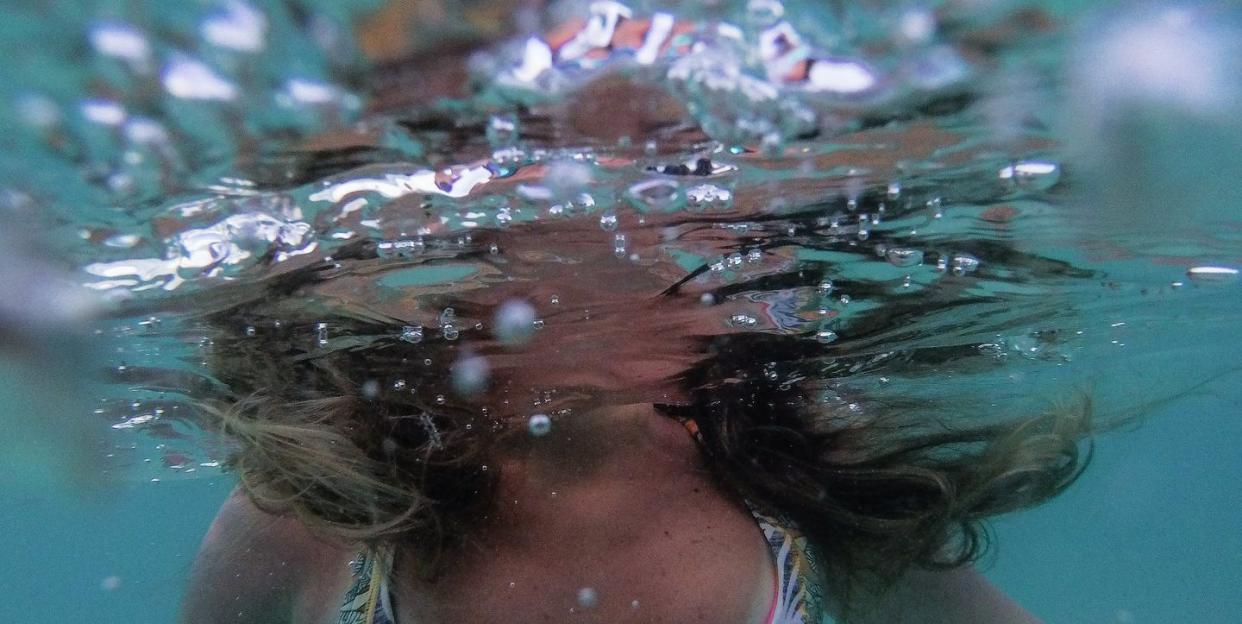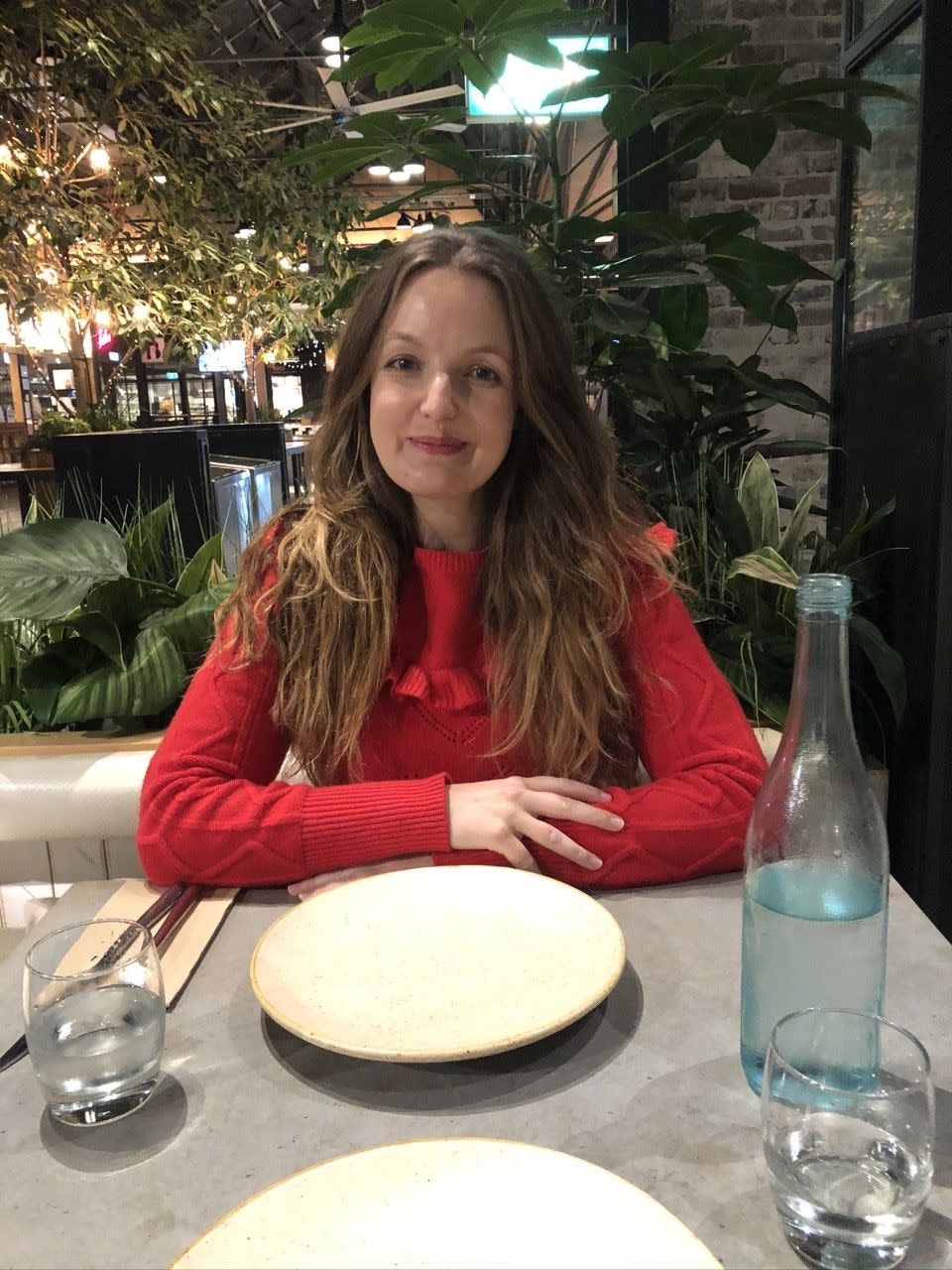'My anorexia made me want to disappear'

Lockdown has sparked a huge increase in demand from those seeking help and support for an eating disorder, according to the UK's leading eating disorder charity Beat. Kate Leaver, a journalist based between Sydney and London, was diagnosed with anorexia nervosa as a teenager. She has shared her experience in new book What Doesn't Kill You: 15 Stories of Survival. This is an extract from the book.
'I was thirteen when I first wanted to disappear.
Glandular fever and then chronic fatigue syndrome had me bedridden. I missed years of school, watching Friends on VHS from my mother’s bed, instead of learning algebra and conjugating French verbs. My parents took me to every type of medical professional we could think of, desperate to find me the energy to participate in my own youth.
On this pilgrimage around the suburbs of Sydney, we visited a naturopath: could my obscene lethargy actually be a food allergy? She put me on an elimination diet to test the possibility.
The more food groups I banished from my plate, the more powerful I felt. My waist and thighs and arms started shrinking, my school friends complimented me on my diminished figure, my sense of self blended into my feeling of hunger.
A growl in my stomach felt like pride, a tremor in my hands felt like an achievement. A diabolical thought came, bidden by restriction: what if I just stopped eating altogether?

High on the feeling of getting smaller, I started to hide, throw out or regurgitate food. I turned down invitations to go out with friends, frightened by the prospect of pizza at a sleepover or ice cream at the movies. I lied to my parents about when and what I ate. I dawdled at mealtimes, shifting the contents of my dinner around until I was allowed to leave the table. My days became obstacle courses: how many calories could I dodge, how many meals could I avoid, how many tastes could I refuse.
At the beginning of my disappearance, I had the perfect alibi: we had paid a woman to prescribe a restrictive diet for me in search of a diagnosis. For a time I was just following orders. Then, when we called an end to my allergen search, I simply continued.
My life shrank as my hips did; I lived small and narrow. I didn’t socialise much, I rarely made it to school, I scarcely thought about anything except food. I didn’t have the energy to catch up on homework or even read; all I could do was lie in front of the television and fantasise about the texture of a snack-size Mars bar.
This continued until a tenuous school friend told her mother that she’d noticed me destroying my sandwiches. Her mother told mine, which confirmed a frightening suspicion she’d already harboured without truly understanding where a diet ends and an illness begins.
She had known for a while, without knowing she knew, that something wasn’t right. I confessed, we said the word ‘anorexia’ out loud and booked in to see our family GP. There, I was weighed, interrogated and referred to an eating disorders specialist whose bedside manner comprised of yelling until her neck trembled.
She recommended I stay in an eating disorders clinic at a hospital half an hour from my home in Sydney, a third-floor labyrinth of shared rooms with pallid pistachio walls and fluorescent lighting.
For five weeks I shuffled in slippered feet between my single bed and the communal room in which we whispered at our group therapy sessions. I caught the elevator down to the cafeteria (we weren’t allowed to use the stairs; our predecessors had burned too many calories on those flights) three times a day to feed myself at a table of silent women, each duty bound to finish her plate or else face the wrath of our head nurse.
My anorexia was always entangled with my depression. Depression taught me to starve and starving myself fed the depression. I’ve been on and off antidepressants since I was twelve. As a teenager, I wanted to shrink away from the world in the only way I knew how and by denying myself food. It was my best effort to vanish, one skipped meal at a time.
It was about so much more than food, it was so much worse than a diet. It wasn’t weight loss for the sake of looking good in a bikini but something darker than that, something angrier, more cruel, more hateful.

When I chose not to eat, I was deliberately denying myself the nourishment to live. I was trying to make my body match the way I felt: small, weak, brittle. I became obsessed with food and the feeling its absence gave me, but it wasn’t simply because I wanted to be more attractive. It was because I wanted to withdraw from the act of living my life.
Personifying my illness forced me to see it as something separate from me, which brought a revelation: if anorexia was my nemesis rather than my friend, then recovery could be my revenge. I found a strength inside me that I hadn’t known was there – and I ate. I ate. I ate. I ate.
With support from a psychiatrist, a psychologist, a GP and my mother, I returned to a healthy weight, able to nourish myself even when the temptation to vanish lingered. I read more about anorexia and the science of starvation.
I learned about my cunning condition and felt bolder with that knowledge. I came to understand that my illness was a dangerous, chaotic mix of genetics, biology, psychology, inherited anxiety and social pressure. Knowing all that made me stronger. There was no one cause for it, just as there is no one solution.
I have the body, now, of someone who eats food. I take up more space than I ever have and I feel entitled to it.'
If you’re worried about your own or someone else’s health, you can contact Beat, the UK’s eating disorder charity, on 0808 801 0677 or beateatingdisorders.org.uk
What Doesn't Kill You: 15 Stories of Survival is out now.
Subscribe to Red now to get the magazine delivered to your door. Red's latest issue is out now and available for purchase online and via Readly or Apple News+.
Like this article? Sign up to our newsletter to get more articles like this delivered straight to your inbox.
You Might Also Like



